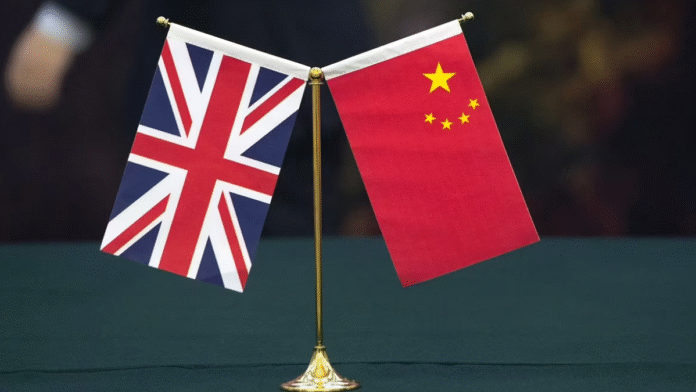The UK is facing scrutiny after prosecutors dropped a high-profile spying case involving two British men accused of working for China. The sudden collapse has sparked concerns that economic and trade priorities may have outweighed national security.
The men, Christopher Cash and Christopher Berry, both in their early 30s, were accused of providing sensitive information about UK parliament members to a Chinese agent. Cash, a parliamentary researcher at Westminster, had worked closely with lawmakers and led a group focused on China-UK relations. The case, ongoing since 2024, was scheduled to go to trial in October 2025.
Last month, the Crown Prosecution Service (CPS), led by Stephen Parkinson, dropped the charges, citing insufficient evidence. The decision surprised many, as the case had previously been expected to proceed.
Why the Case Collapsed
Cash and Berry were charged under the old Official Secrets Act, which required the country allegedly being spied for—China—to be officially considered an “enemy.”
Reports suggest that UK security advisers, including Jonathan Powell, the Prime Minister’s national security adviser, and Matthew Collins, deputy national security adviser, refused to call China an enemy in court. They argued that doing so could harm trade and diplomatic relations, especially amid discussions over economic ties and potential investment.
Without this classification, prosecutors felt they could not secure a conviction. The National Security Act of 2023 later replaced the term “enemy” with “foreign power,” but Cash and Berry could not be charged under the new law because the alleged spying occurred before it took effect.
Earlier this year, a similar case involving six Bulgarians convicted of spying for Russia succeeded because advisers had clearly identified Russia as a threat. The decision not to label China in the same way played a major role in the collapse of the Cash and Berry trial.
Reactions and Concerns
The dropped case has raised alarms about the safety of UK institutions. Sir Lindsay Hoyle, House of Commons Speaker, said he was “very unhappy” with the CPS decision, warning it could leave the door open for foreign actors to spy on parliament.
US tariffs shock Swiss economy; country offers weapons and energy to end trade war
Some MPs, including Karen Bradley and Alan Slaughter, criticized the outcome, noting the prosecution had been expected to be strong. They worry the decision may signal to foreign powers that spying on UK politicians carries little risk.
Government officials insist they did not interfere with the CPS. A spokesperson for Sir Keir Starmer stated that no evidence was withheld and that the prosecution decision was made independently.
Yet, the involvement of top security advisers who reportedly refused to call China an enemy highlights the tension between trade and national security. The UK maintains a complex relationship with China, one of its largest trading partners, while also warning about growing espionage and interference in its national security strategy.
Prosecutors said they considered alternative charges but found none suitable. The combination of legal limitations and concerns over trade and diplomatic relations contributed to the trial’s collapse.
What the Case Revealed
The espionage case illustrates the delicate balance between economic priorities and national security. While prosecutors cited evidential limitations, the refusal to call China an “enemy” was decisive, showing how trade concerns may weigh over spying issues.
Cash and Berry denied any wrongdoing, and the trial never proceeded. Still, the case has sparked debate over how the UK balances security threats from foreign powers with trade and investment priorities.
It also highlights the importance of clear laws and guidance in espionage cases, demonstrating how government advice and legal definitions can directly affect outcomes.


